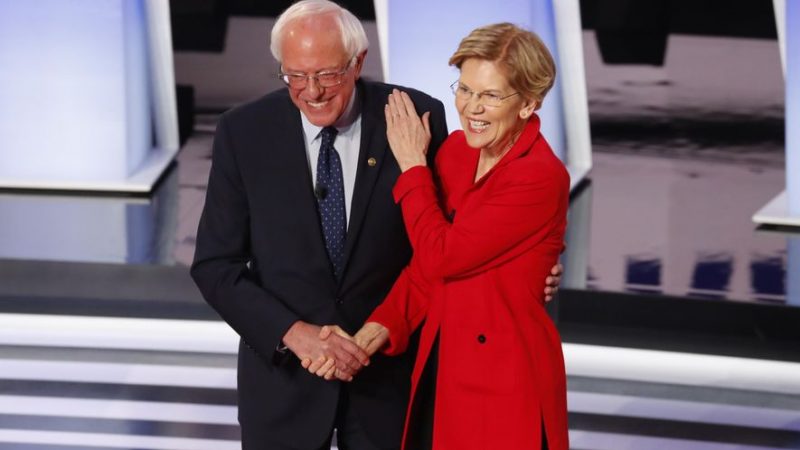Elizabeth Warren’s Heritage Now the ‘But Her Emails!’ of the 2020 Presidential Campaign

One of the more fascinating phenomena of elite political journalism is the apparently sincere belief by some reporters that a story’s narrative is something that just sort of happens, as opposed to being the product of specific choices they make about what to cover.
Thursday brought us a good example in the form of this Washington Post story. The paper this week turned up Elizabeth Warren’s registration card with the Texas state bar from 1986. In the line on the form asking for her race, Warren filled in “American Indian.”
Confronted by the Post, Warren both dismissed the issue as minor (“This was about 30 years ago”) and noted, correctly, that there is a distinction between what she wrote in one line on a card in 1986 and the larger issue of who identities as a Native American (“[T]here really is an important distinction of tribal citizenship”).
According to the Post, “The matter now threatens to overshadow the image Warren has sought to foster of a truth-telling consumer advocate who would campaign for the White House as a champion for the working class.”
Let us imagine for a moment the circumstances here. Warren filled out this card in 1986, long before she was a public figure of any sort. The card itself states that the information about race is “for statistical purposes only.” This indicates nothing beyond the fact that Warren apparently believed what she had always been told by her family: that she had a Native American ancestor. Which has been her response ever since this issue first surfaced.
There is zero reason to think she earned some extra advantage as a practicing lawyer or a law professor, then or for the rest of her career. Which was the conclusion of the Boston Globe when it thoroughly investigated the charge a couple of years ago.
So, why should the entire matter “overshadow” Warren’s image as a consumer advocate? What about it changes the work she has done as a law professor and then a United States senator to call attention to the predatory financial practices of American businesses, and the ways those businesses use deception and opacity to ensnare consumers in webs of debt and penury?
There is zero obvious reason why this issue should receive more coverage than any of Warren’s political positions. There is zero reason why the Washington Post should ask her about this and not about the Trump administration’s decision, this week, to allow the Consumer Financial Protection Bureau, which Warren built from the ground up during the Obama presidency, to weaken the rules governing payday lenders. Yet neither of the Post’s stories on the CFPB’s turn quotes Warren, despite the fact that regulating these lenders has been a central issue of her career. There is zero reason why other members of the political press from a rival paper should plump this story, thereby indicating to other reporters that it is important and they should continue dogging Warren about it no matter how many times she gives them the same answer.
This is how the narrative gets built. Reporters keep putting out these little bits of folderol, which Warren’s political opponents use in bad-faith attacks on her integrity (does anyone believe Republicans really take offense that she claimed Native American ancestry, and don’t just want an excuse to keep her political messaging from breaking through to the electorate?), which allows the same reporters to claim that the issue continues “dogging” and “casting shadows” on her campaign
It is an ouroboros of bad faith that recalls the outsized amount of coverage devoted to Hillary Clinton’s emails in 2016. Sadly, no one in the political press seems to have learned anything since then.






